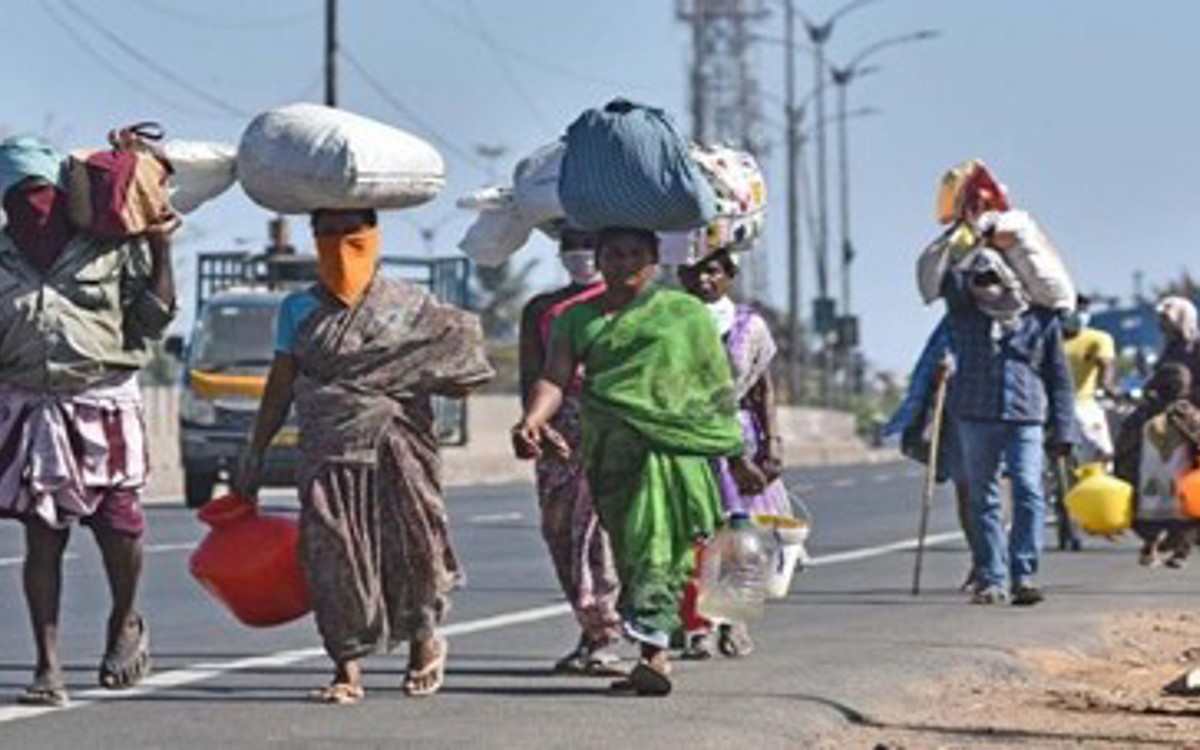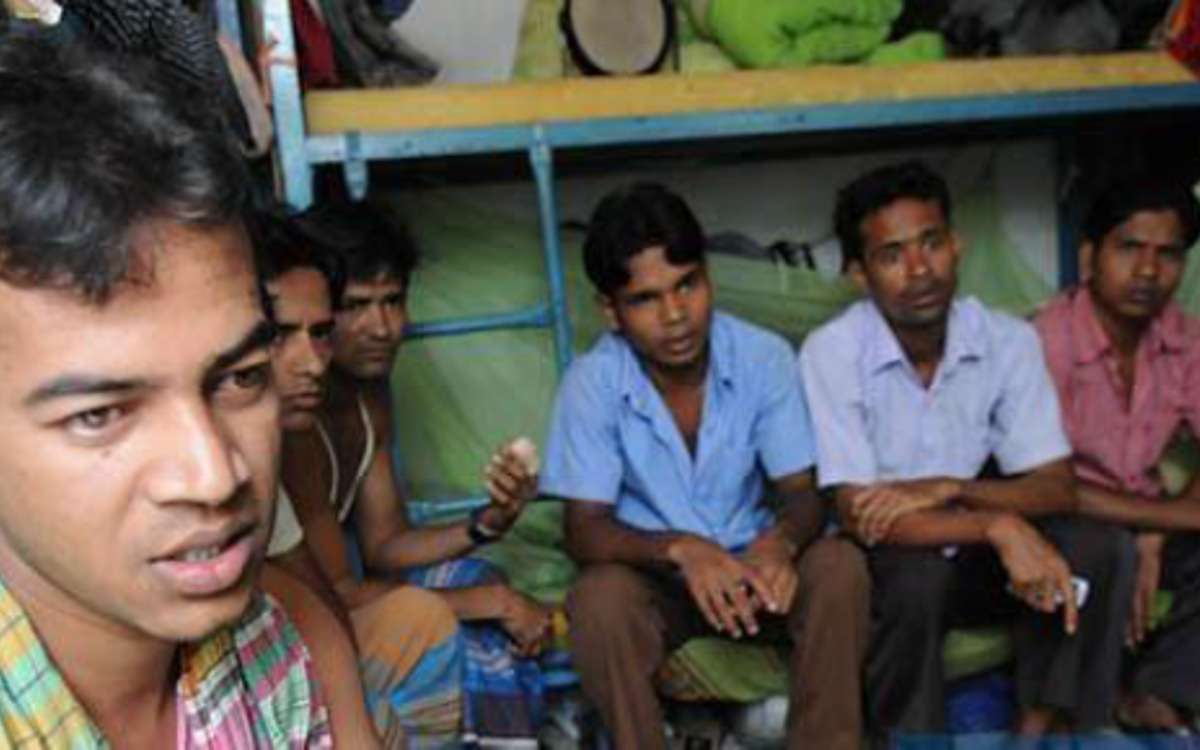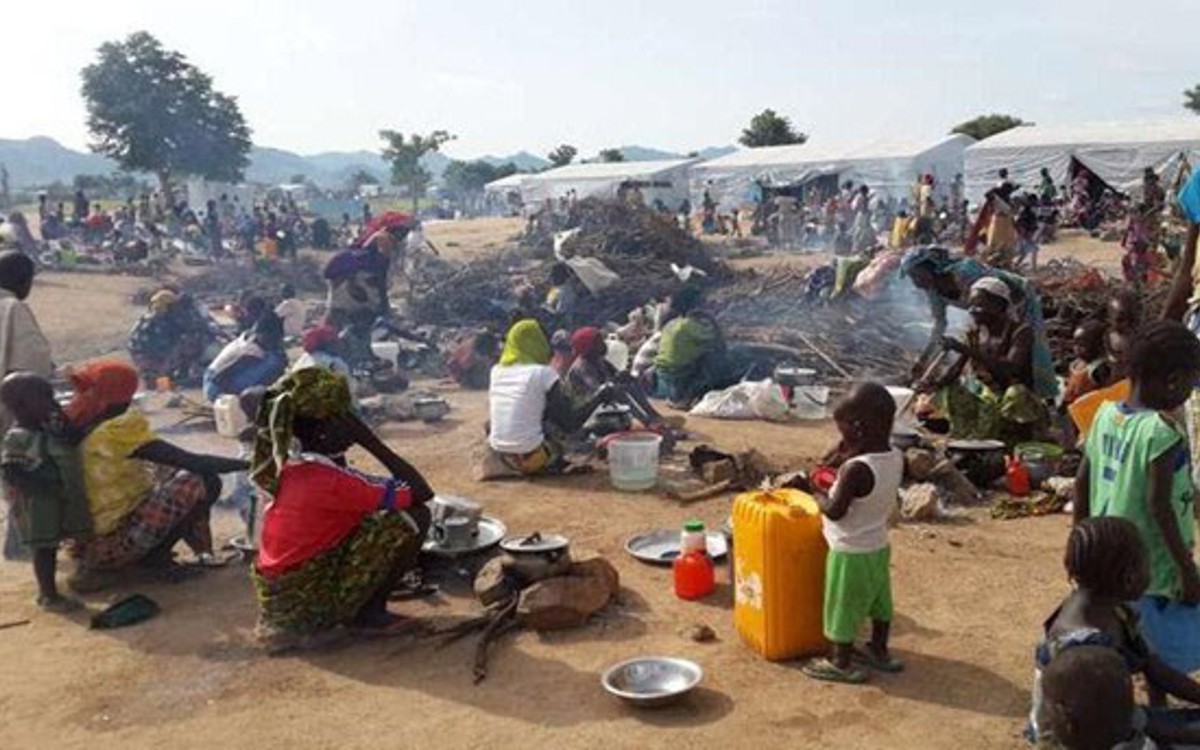
ACU Summer School unites students from every corner of the Commonwealth to discuss multidisciplinary issues of global importance.
In 2020 delegates from across the Commonwealth came together to examine themes linked to migration, including: climate change, youth labour market participation, social media, health, and intergovernmental partnerships.
In groups, students delivered a presentation on a topic linked to migration before a panel of judges. In this series of blogs, the three winning groups write about their ACU Summer School 2020 projects. This group presented on health and migration and came second place.
Healthcare is a basic human right. To enable migrants to become productive members of society, implementing measures to support their health needs is essential.
Migration is a fact of today’s globalised world and remains a complex phenomenon with multiple economic, social and security factors. Migrants face strong challenges with their physical, mental, and social well-being because of their lack of access to adequate health before, during, and after the migration journey. This is exacerbated by the social inequalities they face.
Our group looked at the complex intersections of migration and health across Mauritius, Cameroon, Ghana, the northern Rakhine state of Myanmar, and India.
Mauritius
Mauritius employs 29,400 migrant workers from countries such Bangladesh, China, India, Sri Lanka and Madagascar. Despite laws to protect workers’ rights, the health of Bangladeshi migrant workers is often compromised due to poor working conditions within the labour industry, such as low pay, long hours and weak health and safety standards.

Cameroon
Socio-political instability and unrest for over four years have subjected around 444,000 people to internal displacement and homelessness in Cameroon. These conditions put internally displaced individuals at a disadvantage as infections spread in overcrowded places such as refugee camps.
Migrants are faced with diseases like malaria, typhoid, cholera, HIV/AIDS, chlamydia, gonorrhoea and other STIs, and limited access to healthcare makes it difficult to manage any non-communicable diseases such as chronic hypertension, diabetes, kidney, or heart problems.

Ghana
Ghana has the fourth largest refugee population in the West African sub-region, after Senegal, Cote d’Ivoire and Guinea. Refugees face multiple health conditions including psychological conditions such as depression in Ghana. Programmes such as immunisation, nutrition and child-welfare, antenatal and post-natal clinics were introduced to meet the healthcare needs of women and children and to limit the psychological damage. Asylum seekers and refugees have been equally provided with health insurance cards to facilitate their access to healthcare (Amemasor-Doe, 2018).
Myanmar
In the northern Rakhine state of Myanmar, natural disasters, hostile economic conditions, community violence, and conflicts have subjected many people to internal displacement. Each year, an average of 416,000 people need humanitarian support due to a lack of public health coverage such as water, sanitation, hygiene (WASH), communicable disease control, and disease outbreak management. The unemployment rate in northern Rakhine is three times the national average which has led young people to migrate for employment. It is clear from this example that poor healthcare hampers the potential of migrants - both in terms of their ability to work and integrate into their host country.
India
As of 2019, 17.5 million people of Indian origin are residing in other countries as immigrants. In India, socio-political factors including marriage and employment opportunities have forced out many women from the formal sector to take up work in the informal sector as domestic helpers, agricultural labourers, vendors and construction workers.
All of this affects the health of migrant women, whose physical, economic, and social well-being are also undermined by various forms of discrimination linked to ethnicity, race, and poverty. Common health problems include anaemia, STIs, period-related infections, tuberculosis, pregnancy issues, malaria/dengue, diarrhoea, skin infections, and malnutrition.
India imposed a nationwide lockdown in March 2020, leaving millions of migrant workers in the lurch. The condition of female migrants in India was already poor and the current COVID-19 pandemic has increased their vulnerability.

What can be done?
The examples above illustrate a clear link between migration and compromised health. Addressing the health needs of migrants is key to helping them become productive members of society. Leaders and stakeholders - including migrant communities, policymakers, practitioners, civil society, and researchers -need to regard migrant health as a human right and an empowerment issue. Migration and health should not be considered only in terms of crisis but also in terms of benefits, vulnerabilities, and resilience.
An important place to start is the establishment of migrant-designated hospitals supported by private or public partnerships, to facilitate access to proper healthcare and fulfil the health needs of migrants. Furthermore, the creation of a commission or a department specific to migrant women which focusses on advocacy, legal awareness of rights, easing the affordability and accessibility to health care services, livelihood and education services would be beneficial.
Further important steps include:
- Registering migrants as an organised labour force and maintaining and updating their data
- Governments should ensure the introduction and maintenance of major health policies aimed towards the prevention and treatment of diseases as well as the promotion of healthcare services for migrants
- Regular health check-up camps with an emphasis on pregnant women
- Incorporating chapters on migration, refugees, and health issues in educational resources to sensitise the youth. This would also help students develop understanding and empathy for migrants and refugees
Ultimately, respect, love, and empathy for migrants can help in making the world a better place to live in. The fact that we are all the same people, exposed to different conditions, only serves to show that we need unity in the face of diversity.
